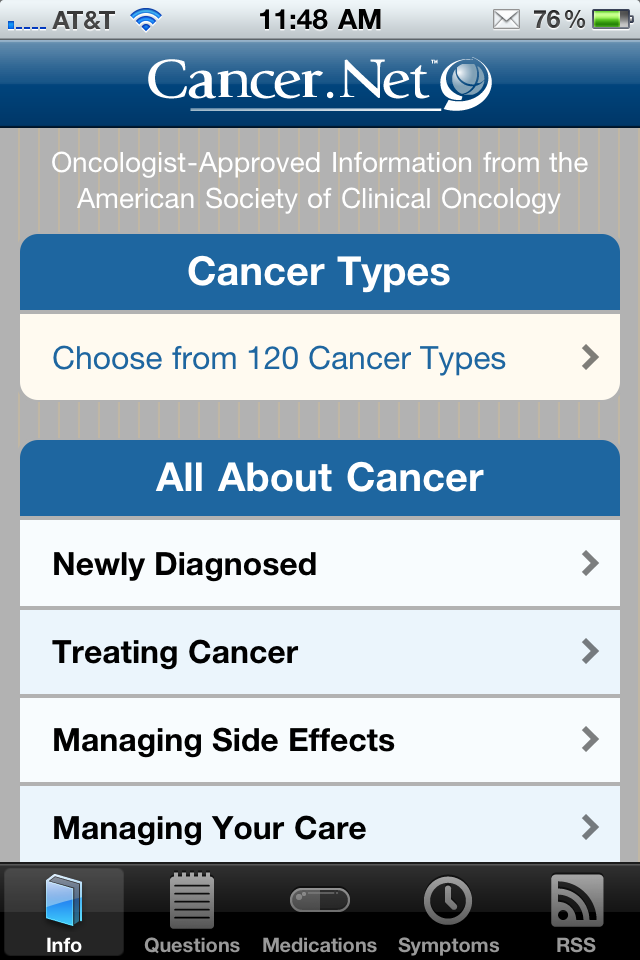Health apps for cancer patients represent a groundbreaking innovation in cancer care technology, bringing personalized support straight to users’ fingertips. These smart health coaching apps are designed to assist patients in managing their medication adherence and offer real-time interventions that adapt to each user’s unique circumstances. By leveraging advanced AI in health apps, these tools provide a tailored experience that recognizes and responds to the fluctuating needs of individuals undergoing treatment. From monitoring medication schedules to providing emotional support through gamified features, these applications enable significant improvements in patient outcomes. As researchers continue to refine these adaptive interventions in healthcare, cancer patients can look forward to enhanced management strategies that make navigating their health journeys more manageable and less overwhelming.
Mobile applications designed for oncology patients play a vital role in revolutionizing the landscape of cancer management. These digital healthcare solutions offer dynamic support systems that help individuals cope with the complexities of their treatment regimens. By utilizing advanced algorithms, these apps facilitate medication adherence and create a personalized experience that resonates with the unique challenges cancer patients face. With features that promote adaptive intervention in healthcare, patients can gain timely assistance and motivation precisely when they need it, ultimately fostering better health outcomes. As the technology continues to evolve, the integration of intelligent applications will be crucial in supporting cancer patients through their fight against the disease.
The Role of Health Apps for Cancer Patients
Health apps for cancer patients are emerging as essential tools in the management of treatment and recovery periods. These applications employ sophisticated algorithms to personalize care, ensuring that each patient’s unique needs are met. For instance, during the arduous process of stem cell transplantation, patients are required to adhere to complex medication regimens while managing debilitating side effects. By utilizing technology that also incorporates elements of behavioral science, these apps provide real-time feedback and support, significantly improving medication adherence—a critical factor in recovery outcomes.
Moreover, these health apps provide additional features such as motivational prompts and social support functions, which help bridge the gap between patients and their caregivers. Approximately 73% of family caregivers play a vital role in medication management, and apps like those developed in Susan Murphy’s lab focus on enhancing these relationships. This interactive approach not only supports the patient but also empowers caregivers, thus ensuring adherence and better health outcomes.
Advancements in Cancer Care Technology
The advancements in cancer care technology, particularly through mobile health applications, signal a transformative shift in how support is provided to patients. By integrating artificial intelligence, these applications are designed to learn from patient interactions, ensuring that the information and assistance offered are tailored to individual situations. This continuous feedback loop allows for adaptive interventions in healthcare that are personalized and contextually relevant, which are crucial for those navigating the complexities of cancer treatment.
Additionally, as these technologies evolve, they are becoming increasingly sophisticated. For example, programs utilizing reinforcement learning can adapt over time based on what strategies have proven most effective for each user. This is especially pertinent for cancer patients, who may face different challenges throughout their treatment journey. The goal is to provide not just recommendations, but actionable insights that lead to improved medication adherence rates and overall health management.
Just-in-Time Adaptive Interventions in Healthcare
Just-in-time adaptive interventions represent a novel approach within healthcare, particularly for chronic conditions like cancer. This method employs mobile health applications to deliver support at critical moments when patients need it most, thus enhancing engagement and compliance with treatment protocols. For instance, an app developed by Susan Murphy’s lab utilizes real-time data to determine the optimal times to send reminders or encouragement, maximizing the likelihood of adherence to complex medication schedules.
The implications of such technology are profound. By recognizing patterns in user behavior and preferences, these apps can deliver personalized interventions that adapt to each individual’s circumstances. This not only improves the efficiency of care but also empowers patients to take an active role in their healthcare decisions, thereby fostering a sense of agency that can be crucial for successful cancer treatment outcomes.
Harnessing AI in Health Apps
The integration of artificial intelligence (AI) into health apps is transforming the landscape of patient care, particularly for cancer patients. These smart applications leverage machine learning algorithms to offer tailored recommendations based on previous patient interactions and outcomes. For example, a mobile app for medication adherence might analyze a patient’s history and preferences to optimize reminder notifications, thereby reducing the cognitive load on patients who are already dealing with the complexities of their treatment.
In addition, AI-driven health apps can analyze large datasets to derive insights that inform clinical decisions. This capacity not only enhances the personalization of patient care but also contributes to the broader field of cancer research by identifying trends and treatment efficacies based on real-world data. Such advancements signify a critical step forward in utilizing technology to improve health outcomes and provide accessible support for patients in the complexity of their care processes.
Smart Health Coaching Apps: A New Frontier
Smart health coaching apps are revolutionizing the support systems available to cancer patients, acting as pocket coaches that guide users through treatment journeys. These applications utilize algorithms to monitor user behaviors and provide timely interventions that can significantly enhance medication adherence and overall health management. The goal is to create a dynamic feedback mechanism where patients receive individualized support that evolves based on their specific treatment circumstances.
As the field of digital health grows, the potential for smart health coaching apps continues to expand. With features such as progress tracking, personalized goal-setting, and tailored motivational messaging, these tools not only enhance the patient experience but also foster a collaborative relationship between patients and their caregivers. This synergy is particularly important in cancer care, where emotional and psychological support plays an essential role in managing the challenges associated with treatment.
Enhancing Medication Adherence with Technology
Medication adherence stands as a significant challenge in cancer treatment, with studies revealing that more than 70% of patients struggle to follow their prescribed regimens. Innovative technologies are being developed to tackle this problem, especially through health apps that focus on creating tailored reminders and motivational prompts. These applications aim to bridge the gap between intention and action by delivering support exactly when patients need it, thus fostering better adherence to complex medication schedules.
Furthermore, these technologies enhance communication between patients and healthcare providers. For instance, platforms that allow for the sharing of medication adherence data can lead to more informed clinical decisions. This transparency fosters a collaborative approach, encouraging patients to take an active role in managing their health while providing healthcare teams with insights that can inform interventions when adherence issues arise.
The Impact of Caregiver Support on Cancer Patients
Caregiver support is crucial in the cancer treatment process, as patients often rely heavily on family members for assistance in managing their health. With approximately 73% of caregivers assuming primary responsibility for medication adherence, technology-driven solutions have emerged to support both patients and their caregivers. These health apps facilitate communication and coordination, allowing caregivers to receive real-time updates on their loved one’s needs and treatment progress.
Moreover, apps that incorporate features promoting social networks and community support can significantly enhance caregivers’ contribution to patient care. By fostering an environment where caregivers can share experiences and strategies, these applications not only mitigate the emotional toll often associated with caregiving but also empower providers to deliver more effective support. As such, the integration of technology in caregiver-patient interactions contributes to more holistic cancer care.
Real-Time Personalization in Health Applications
Real-time personalization is the hallmark of modern health applications, particularly for patients undergoing cancer treatment. As traditional approaches often fail to meet the dynamic needs of patients, AI-driven apps are designed to continuously adapt based on user interactions and real-world responses. This means that instead of standard reminders, a patient’s app will send customized prompts at the most effective times tailored to their unique situation, enhancing engagement and adherence.
This model not only increases the relevance of interventions but also allows for flexibility in care. As patients progress through their treatment, their needs and motivations may shift; real-time personalization ensures that health apps remain aligned with these changes. By adapting support and resources to the current context, these applications help patients maintain focus on recovery and wellness in a manner that traditional methods simply cannot achieve.
Future Directions in Cancer Care Technologies
As technology continues to shape the future of healthcare, cancer care technologies are poised for significant advancements. The integration of machine learning and AI facilitates the development of smarter health applications that not only support patients but also collect valuable data that can inform future interventions. The ongoing research and trials in this area hold promise for more personalized and effective treatments, ultimately improving patient outcomes in the long run.
Moreover, the evolution of cancer care technologies opens up pathways for collaboration between researchers, clinicians, and patients. As insights gained from health app interactions are analyzed, they can lead to innovations in treatment strategies and a deeper understanding of patient behaviors. This collaborative landscape underscores the importance of patient-centered digital solutions in shaping future cancer care and improving the overall quality of life for those affected.
Frequently Asked Questions
What are health apps for cancer patients and how can they assist with cancer care technology?
Health apps for cancer patients utilize advanced cancer care technology to provide personalized support, medication reminders, and emotional assistance throughout treatment. These apps adapt to the unique needs of each patient, promoting adherence to medication and improving overall health outcomes.
How do AI in health apps improve medication adherence for cancer patients?
AI in health apps enhances medication adherence by utilizing reinforcement learning algorithms. These algorithms customize reminders and support based on real-time user data and interactions, ensuring that patients receive timely and relevant notifications that align with their schedules and treatment regimens.
What is just-in-time adaptive intervention in healthcare and how does it benefit cancer patients?
Just-in-time adaptive intervention in healthcare refers to providing support to cancer patients at the moment they need it most. By recognizing changes in a patient’s condition or context, health apps for cancer patients can offer tailored advice and reminders, which helps improve medication adherence and overall well-being.
How can smart health coaching apps help family caregivers of cancer patients?
Smart health coaching apps offer resources and tools specifically designed for family caregivers of cancer patients. These apps can deliver medication reminders, educational materials, and emotional support, helping caregivers effectively manage the complexities of caregiving while improving patient outcomes.
What role do health apps for cancer patients play in improving communication between patients and caregivers?
Health apps for cancer patients enhance communication between patients and caregivers by sending motivational prompts and reminders to both parties. This shared experience fosters collaboration and support, ultimately helping patients adhere to their medication plans and manage their recovery process more effectively.
| Key Aspect | Details |
|---|---|
| Target Users | Cancer patients, caregivers, and cannabis users |
| Main Features | Real-time support, personalized medication reminders, and social support integration |
| Technology Used | Reinforcement learning algorithms and adaptive interventions |
| Current Focus | Developing an app for stem-cell transplant patients and their caregivers |
| Clinical Trial | ADAPTS HCT targeting young adult patients post-transplant |
| Goal of App | Enhance patient-caregiver communication and medication adherence |
Summary
Health apps for cancer patients are transforming the way individuals manage their health and recovery. These innovative mobile applications utilize advanced algorithms to provide personalized support, helping users adhere to medication regimens and improve overall wellbeing. By focusing on real-time feedback and nurturing the relationship between patients and their caregivers, health apps are poised to make a significant impact in the lives of those battling cancer.



